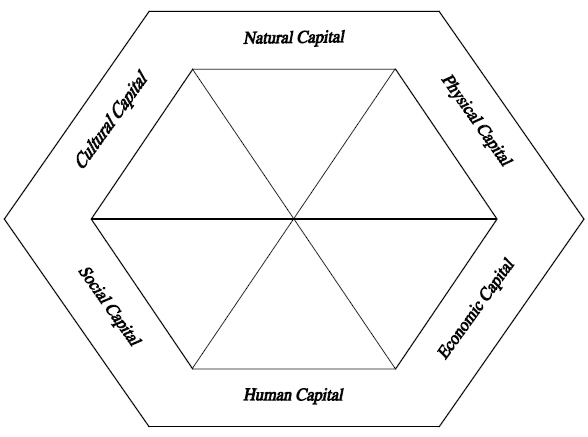A conservation management curriculum is being created by the Going Green Directorate . The education framework is based on ten mind maps that provide system-thinking templates for applications of the logic of action planning and recording to conserve community, neighbourhood and global cultural capital for a sustainable future.
Linking social and environmental policy through conservation management is necessary for two reasons. First, to ensure we genuinely tackle the root causes of unsustainable ill-health, environmental/economic poverty and disadvantage. Second, to deliver significant economic and social dividends in the form of jobs, economic progress and stronger communities.

Natural capital – any stock of natural assets that yields a flow of valuable goods and services into the future. The total stock of environmental assets which make up natural capital may be divided into three categories; non-renewable resources, the finite capacity of natural systems to produce "renewable resources" and the capacity of natural systems to absorb our wastes and emissions without destructive side effects.
Physical capital – the stock of material resources such as equipment, buildings, machinery and other infrastructure that can be used to produce a flow of future income.
Economic capital – refers to the way we allocate resources and make decisions about our material lives.
Human capital – the "knowledge, skills, competencies and other attributes embodied in individuals that facilitate the creation of personal, social and economic well-being". Human capital is formed consciously through education and training and subconsciously through experience.
Social capital – is "the relationships, networks and norms that facilitate collective action": in other words, the shared knowledge, understandings and patterns of interactions that a group of people bring to any productive activity.
Cultural capital – is the product of shared experience through traditions, customs, heritage, identity and history.
"A conservation management curriculum is needed for living sustainably as an expression of cultural ecology, which combines knowledge about natural resources and human resources within political economy to control the conservation of resources and establish cultures of stability".
A click on pictorial version of the above statement is available.
A more comprehensive mind map is in progress.
For further information contact:
belprof@aol.com
Website templates
|

